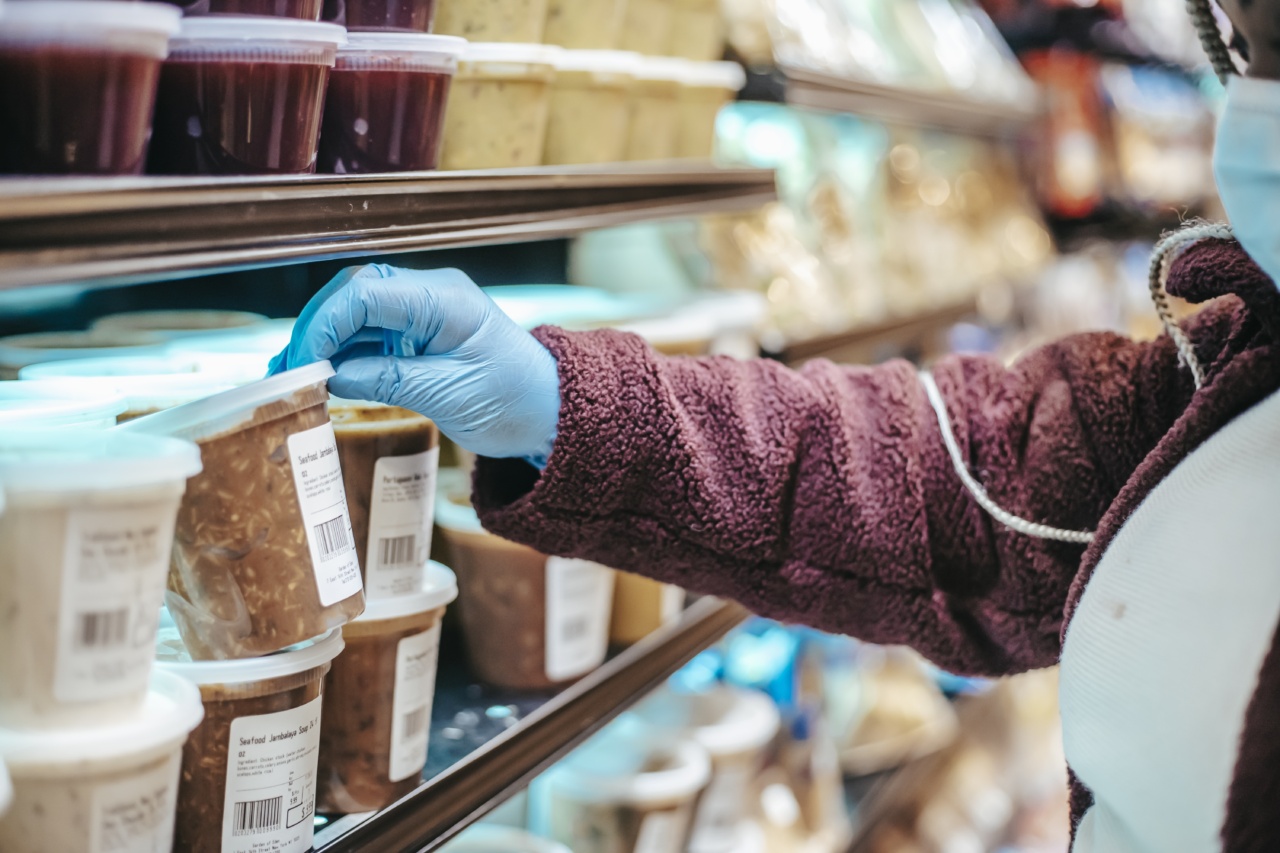Bloating is a common condition that can make your abdomen feel full and tight. It often occurs after meals and is characterized by excessive gas production or disturbance in the movement of the digestive system.
While occasional bloating is normal, experiencing it frequently or on a chronic basis can be bothersome and uncomfortable.
There are several factors that can contribute to bloating, including:.
1. High-Fiber Foods
Eating a diet rich in fiber is generally considered beneficial for your digestive health. However, consuming too much fiber, especially insoluble fiber, can cause bloating.
These types of fibers pass through your digestive system relatively intact and can promote gas production and bloating.
2. Carbonated Drinks
The fizz in carbonated drinks can cause gas to get trapped in your stomach, leading to bloating. Additionally, some carbonated drinks contain artificial sweeteners, like sorbitol, which can be poorly absorbed by your body and cause gas and bloating.
3. Beans and Legumes
Beans and legumes are nutritious and packed with fiber, protein, and minerals. However, they are also high in oligosaccharides, a type of carbohydrate that can be difficult for your body to digest. This can lead to the production of gas and bloating.
4. Dairy Products
Sensitivity or intolerance to lactose, the sugar found in milk and dairy products, is a common condition that can cause bloating.
When lactose is not properly digested, it can ferment in your gut and produce gas, leading to bloating and other gastrointestinal symptoms.
5. Fatty Foods
High-fat foods can delay stomach emptying and cause bloating. This is because fats take longer to digest and can cause a buildup of pressure in your stomach.
Foods high in saturated and trans fats, such as fried foods and fatty meats, are more likely to cause bloating.
6. Artificial Sweeteners
Artificial sweeteners, such as sorbitol, xylitol, and aspartame, are commonly found in diet and sugar-free products. While they may help reduce your calorie intake, they can also cause bloating.
These sweeteners are not easily absorbed by your body and can ferment in your gut, leading to the production of gas and bloating.
7. Onions
Onions contain a type of soluble fiber called fructans, which can cause bloating in some individuals. Fructans can be difficult for your body to digest, especially for those who have a sensitive gut or irritable bowel syndrome (IBS).
8. Cruciferous Vegetables
Cruciferous vegetables, such as broccoli, cauliflower, and cabbage, are highly nutritious and provide many health benefits. However, they also contain a type of carbohydrate called raffinose, which can cause bloating.
Like beans and legumes, raffinose is not easily digested, leading to gas and bloating.
9. Apples
Apples are a great source of vitamins and fiber, but they can also contribute to bloating. Apples contain a type of soluble fiber called pectin, which can ferment in your gut and produce gas.
10. Wheat
Wheat and other grains that contain gluten can cause bloating in some individuals. Gluten is a protein found in wheat, barley, and rye, and some people may have difficulty digesting it, leading to bloating and other digestive symptoms.
What Can You Do About Bloating?
If you frequently experience bloating, there are several strategies you can try to help reduce your symptoms:.
1. Eat Smaller Meals
Instead of consuming large meals, try eating smaller, more frequent meals throughout the day. This can help prevent your stomach from getting too full and reduce the likelihood of bloating.
2. Slow Down While Eating
Eating too quickly can cause you to swallow air, which can contribute to bloating. Take your time and chew your food thoroughly to aid digestion and prevent excessive gas production.
3. Avoid Chewing Gum and Drinking Through a Straw
Chewing gum and drinking through a straw can cause you to swallow more air, leading to bloating. Try to eliminate these habits to help reduce your symptoms.
4. Limit Carbonated Drinks
If you frequently experience bloating, it’s a good idea to limit or avoid carbonated drinks. Opt for still water or herbal teas instead.
5. Cook Beans and Cruciferous Vegetables Thoroughly
Properly cooking beans and cruciferous vegetables can help make them easier to digest and reduce the likelihood of bloating. Soaking dried beans before cooking can also help.
6. Be Mindful of Food Intolerances
If you suspect that certain foods are causing your bloating, consider keeping a food diary to track your symptoms. You may need to avoid or reduce your intake of specific foods that you’re intolerant to.
7. Try Probiotics
Probiotics are beneficial bacteria that can help improve your gut health and reduce bloating. You can find probiotic supplements or consume foods rich in probiotics, such as yogurt, kefir, and sauerkraut.
8. Stay Hydrated
Drinking enough water is crucial for maintaining proper digestion. Aim to drink at least 8 glasses of water per day to help prevent constipation and bloating.
9. Exercise Regularly
Regular physical activity can help stimulate your digestive system and prevent bloating. Incorporate exercises such as walking, cycling, or yoga into your routine to aid digestion.
10. Consider Medical Advice
If your bloating symptoms persist or are accompanied by severe pain or other concerning symptoms, it’s important to seek medical advice. A healthcare professional can help identify and address the underlying cause of your bloating.
Conclusion
While occasional bloating is normal, experiencing it frequently can be uncomfortable and disruptive to your daily life.
By being mindful of the foods that commonly cause bloating and implementing simple lifestyle changes, you can effectively manage and reduce your symptoms. Remember, if your bloating is persistent or severe, it’s important to consult a healthcare professional for proper evaluation and guidance.




























